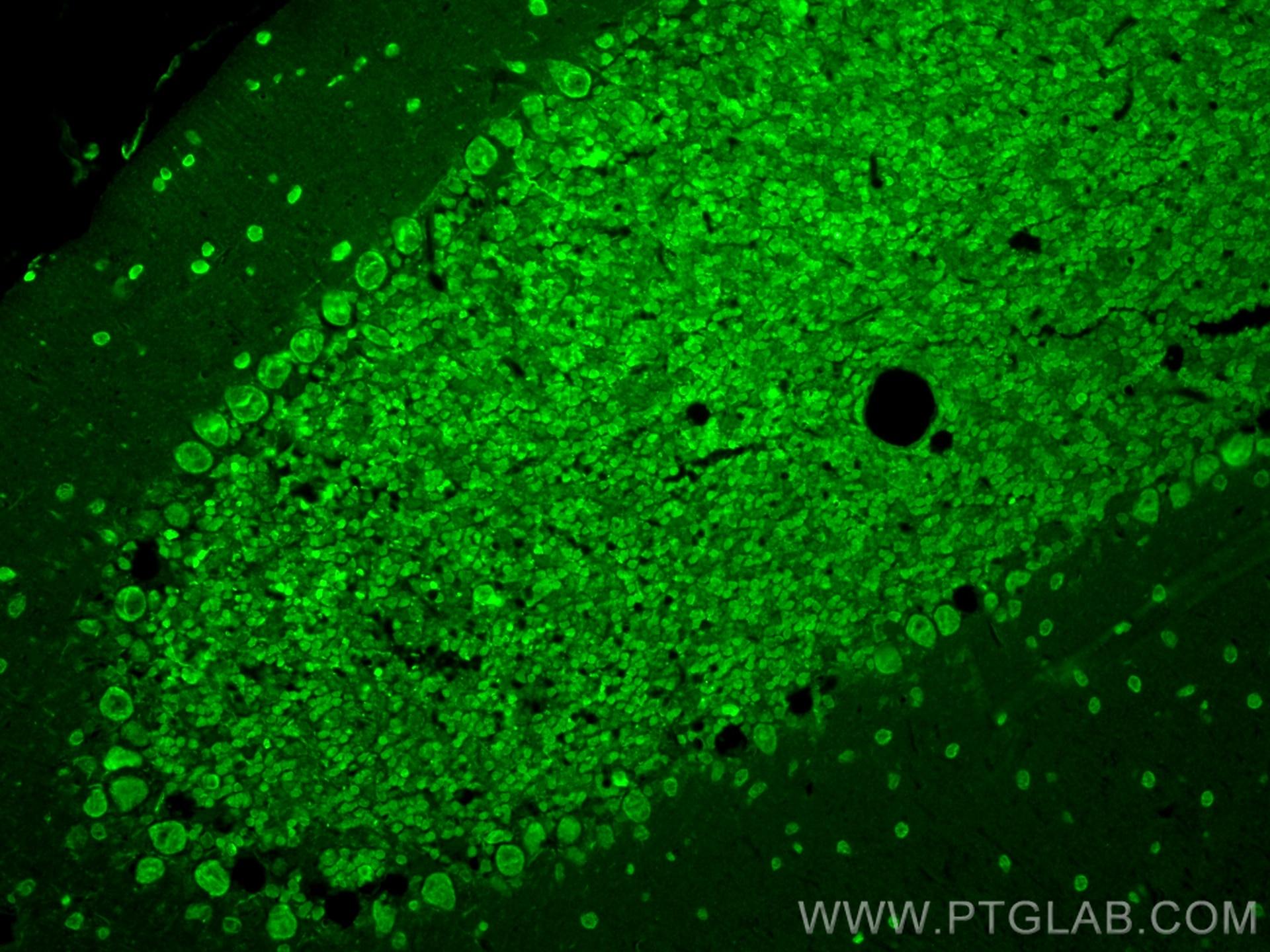Tested Applications
| Positive IF-P detected in | mouse cerebellum tissue |
Recommended dilution
| Application | Dilution |
|---|---|
| Immunofluorescence (IF)-P | IF-P : 1:50-1:500 |
| It is recommended that this reagent should be titrated in each testing system to obtain optimal results. | |
| Sample-dependent, Check data in validation data gallery. | |
Product Information
CL488-10111 targets NUMBL in IF-P applications and shows reactivity with human, mouse, rat samples.
| Tested Reactivity | human, mouse, rat |
| Host / Isotype | Rabbit / IgG |
| Class | Polyclonal |
| Type | Antibody |
| Immunogen | NUMBL fusion protein Ag0156 Predict reactive species |
| Full Name | numb homolog (Drosophila)-like |
| Calculated Molecular Weight | 65 kDa |
| Observed Molecular Weight | 65-70 kDa |
| GenBank Accession Number | BC001794 |
| Gene Symbol | NUMBL |
| Gene ID (NCBI) | 9253 |
| RRID | AB_3672429 |
| Conjugate | CoraLite® Plus 488 Fluorescent Dye |
| Excitation/Emission Maxima Wavelengths | 493 nm / 522 nm |
| Form | Liquid |
| Purification Method | Antigen affinity purification |
| UNIPROT ID | Q9Y6R0 |
| Storage Buffer | PBS with 50% glycerol, 0.05% Proclin300, 0.5% BSA , pH 7.3 |
| Storage Conditions | Store at -20°C. Avoid exposure to light. Stable for one year after shipment. Aliquoting is unnecessary for -20oC storage. |
Background Information
Numbl (also known as numblike or Nbl), as a conserved homolog of Drosophila Numb, is specifically expressed in the brain. Numbl is a cytoplasm protein and has redundant functions in embryonic neurogenesis. It plays an important role in ependymal wall integrity and subventricular zone neuroblast survival. However, its expression and function in the central nervous system lesion are still unclear.
Protocols
| Product Specific Protocols | |
|---|---|
| IF protocol for CL Plus 488 NUMBL antibody CL488-10111 | Download protocol |
| Standard Protocols | |
|---|---|
| Click here to view our Standard Protocols |



